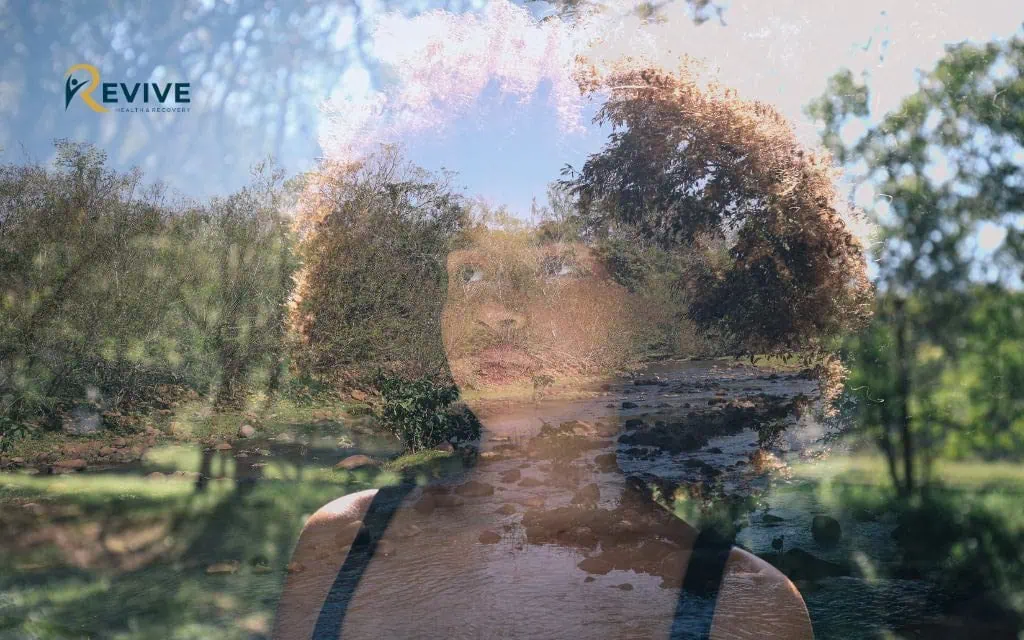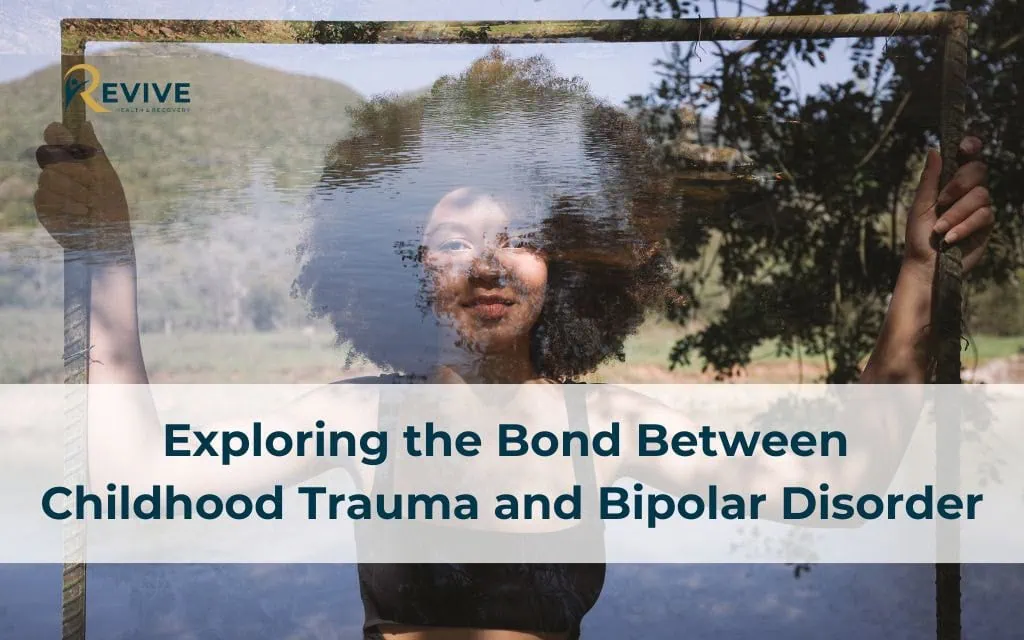Childhood trauma casts a long shadow across adult life. These early adverse experiences – occurring before age 18 – often overwhelm a child’s developing mind, leaving neurological imprints that can manifest years later in unexpected ways. From emotional abuse to neglect, physical harm to witnessing violence, these experiences rewire brain circuits during crucial developmental windows.
The connection between childhood trauma and mental health conditions runs deep. Among these connections, the relationship with bipolar disorder stands out for its complexity and treatment challenges. This mood disorder, characterized by extreme shifts between manic and depressive states, affects approximately 2.9% of adolescents in their lifetime. However, this percentage rises dramatically among those with childhood trauma histories.
The intersection of these two conditions – childhood trauma and bipolar disorder – creates unique treatment needs that standard approaches often miss. When unresolved trauma drives mood instability, traditional bipolar treatments may fall short. Understanding this connection opens doors to more effective, comprehensive care pathways.
Understanding the Connection Between Childhood Trauma and Bipolar Disorder
The relationship between childhood trauma and bipolar disorder represents one of the most complex intersections in mental health. For many individuals struggling with bipolar symptoms, unresolved childhood trauma often lurks beneath the surface, intensifying mood swings and complicating treatment.
For a deeper understanding of bipolar disorder, visit the National Institute of Mental Health’s comprehensive resource on bipolar disorder.
What the Research Reveals About Trauma’s Impact on Bipolar Symptoms
Research has uncovered compelling evidence linking childhood trauma to the development and severity of bipolar disorder. In Colorado, the statistics tell a sobering story. While an estimated 2.9% of adolescents nationwide experience bipolar disorder in their lifetime, those with histories of childhood trauma face a 2.5 times higher risk of developing this condition.
Studies from the University of Colorado Anschutz Medical Campus reveal that childhood trauma physically alters brain development in regions critical for emotional regulation and impulse control. This neurobiological impact creates vulnerability to mood disorders, particularly bipolar disorder.
“The brain’s stress response system becomes permanently rewired during development when exposed to significant trauma,” explains researchers from The START Center at CU Anschutz. “These changes directly affect the same neural circuits involved in mood regulation.”
Colorado has experienced a troubling trend, with poor mental health rates among adolescents more than doubling from 8.8% to 18.5% between 2017 and 2021, highlighting the urgency of addressing this connection.
Types of Childhood Trauma Most Associated with Bipolar Disorder
Not all childhood trauma carries the same impact on bipolar development and symptoms. Research identifies emotional abuse as the most prevalent form associated with bipolar disorder, affecting approximately 50% of patients. This matches Colorado’s child abuse statistics, where emotional maltreatment forms a significant portion of the 9.7 victims per 1,000 children reported in 2019.
To learn more about the various types of childhood trauma, visit the National Child Traumatic Stress Network’s guide on trauma types.
Physical and sexual abuse also show strong correlations with bipolar disorder, often leading to earlier onset and more severe symptom presentations. Additionally, witnessing violence or experiencing disasters leaves lasting imprints on developing brains.
Colorado data reveals particular vulnerabilities among rural communities, where access to early intervention services remains limited despite elevated trauma rates.

The Cycle of Trauma and Mood Dysregulation
Childhood trauma creates a perfect storm for mood dysregulation. The neurological basis lies in trauma’s effect on the brain’s stress response system, which shares significant overlap with mood regulation pathways.
To learn more about how childhood trauma impacts adults, explore our comprehensive guide on childhood trauma in adults.
When trauma remains unaddressed, bipolar symptoms often worsen. Many patients experience specific trauma triggers that initiate manic or depressive episodes. This cycle perpetuates itself: mood instability creates life disruption, which triggers trauma responses, further destabilizing mood.
Breaking this cycle requires addressing both conditions simultaneously. Research from Denver-based treatment centers shows that patients who receive trauma-informed bipolar care achieve significantly better outcomes than those receiving standard treatment alone.
For a broader understanding of trauma and its effects, explore Psychology Today’s overview of trauma.
Recognizing the Signs: When Bipolar Symptoms May Be Trauma-Related
Distinguishing between trauma responses and bipolar symptoms presents a major clinical challenge, resulting in frequent misdiagnosis.
To better understand the symptoms and causes of bipolar disorder, check out Mayo Clinic’s detailed guide on bipolar disorder symptoms and causes.
Differentiating Between Trauma Responses and Bipolar Symptoms
Trauma and bipolar disorder share numerous overlapping symptoms, including:
- Emotional volatility
- Sleep disturbances
- Hypervigilance
- Impulsivity
- Concentration difficulties
This symptom overlap contributes to the startling 70% initial misdiagnosis rate for bipolar disorder. Key differences exist, however, in symptom triggers and presentation patterns. Trauma responses typically connect to specific triggers, while bipolar episodes often emerge with less direct provocation.
“Understanding this distinction requires comprehensive assessment by professionals trained in both trauma and mood disorders,” notes mental health specialists at Revive Health Recovery Center. “Without this dual expertise, critical aspects of the condition may be missed.”
Early Warning Signs in Children and Adolescents
Early identification can dramatically improve treatment outcomes. Children and adolescents with both trauma histories and emerging bipolar symptoms often display:
- Extreme mood swings disproportionate to situations
- Persistent nightmares or flashbacks
- Risk-taking behavior alternating with withdrawal
- Academic performance fluctuations
- Disrupted attachment patterns
These manifestations vary by developmental stage. Denver specialists emphasize the importance of comprehensive evaluation when these patterns emerge, particularly when family history includes either trauma or mood disorders.
The Danger of Misdiagnosis and Improper Treatment
The consequences of misdiagnosis extend beyond delayed proper treatment. Inappropriate medication regimens can actually worsen symptoms when trauma factors remain unaddressed. Studies show that treating bipolar disorder without addressing underlying trauma leads to:
- Higher relapse rates
- Increased suicide risk
- Greater treatment resistance
- More frequent hospitalizations
Denver specialists who understand both conditions apply trauma-informed assessment protocols that capture the full clinical picture, leading to more effective treatment planning and significantly improved outcomes.

The Colorado Landscape: Finding Specialized Care in Denver
Colorado has emerged as a leader in integrated trauma and bipolar treatment, with Denver offering several specialized care options.
Trauma-Informed Treatment Centers in Denver
Denver provides several options for specialized care, including:
Revive Health Recovery Center stands at the forefront of trauma-informed bipolar treatment in Denver. Their integrated approach addresses both conditions simultaneously through customized treatment plans.
Discover more about our integrative trauma treatment center and how we tailor care for complex cases.
Children’s Hospital Colorado offers specialized pediatric services for young people experiencing both trauma effects and bipolar symptoms, with evidence-based approaches tailored to developmental needs.
The University of Colorado Anschutz Medical Campus provides cutting-edge research-based treatment through their specialized psychiatric programs, integrating the latest neurobiological understanding into treatment protocols.
Treatment accessibility varies across providers. Most accept major insurance plans, with Revive Health Recovery offering particularly flexible options, including coverage for those with Medicaid. For rural Colorado residents, telehealth programs provide vital access to specialized care that might otherwise remain out of reach.
Innovative Treatment Approaches Pioneered in Colorado
Colorado leads innovation in treating this complex dual diagnosis. The STEADY Program, developed specifically for bipolar disorder treatment, integrates trauma-informed approaches throughout its protocol, showing remarkable success rates for complex cases.
CU Anschutz researchers have pioneered family-based interventions that address both trauma and bipolar elements within the family system, recognizing that healing often requires addressing intergenerational patterns.
Denver Springs has developed an integrated care model that simultaneously addresses trauma processing and mood stabilization, moving beyond the traditional sequential approach that often leaves one condition undertreated.
The Colorado Behavioral Health Administration’s COACT system represents a statewide effort to implement trauma-informed care across all mental health services, ensuring consistent quality even in complex cases like trauma-affected bipolar disorder.
Building Your Colorado Support Network
Clinical treatment forms just one part of the recovery journey. Denver offers robust support options beyond formal treatment:
Community resources include peer support networks specifically for individuals managing both trauma and bipolar disorder, providing lived experience wisdom that complements clinical care.
Support groups throughout the Denver metro area offer specialized focus on various aspects of recovery, from trauma processing to medication management strategies.
Online communities connect Colorado residents with wider support networks, particularly valuable for those in remote areas with fewer in-person options.
Family support services, like those offered through the Denver Child Advocacy Center, provide education and guidance for loved ones, strengthening the entire support system around the person in recovery.
Evidence-Based Treatment Approaches for Dual Diagnosis
Effective treatment for the trauma-bipolar connection requires specialized approaches tailored to this unique clinical presentation.
Medication Considerations for Trauma-Affected Bipolar Patients
Standard bipolar medication protocols often require modification when trauma factors exist. Research indicates that trauma history can significantly alter medication response patterns, requiring careful monitoring and adjustment.
Coordinated pharmacological approaches typically involve mood stabilizers combined with careful use of other medications that address specific trauma symptoms without triggering bipolar instability.
Medication management specialists emphasize the importance of close monitoring for unique side effects that may emerge in this population. The goal remains finding the optimal balance that addresses both conditions without exacerbating either.
“Medication forms just one pillar of effective treatment,” explain clinicians at Revive Health Recovery. “Integration with appropriate therapy approaches and lifestyle modifications creates the strongest foundation for recovery.”
Trauma-Focused Psychotherapy Options
Several evidence-based psychotherapy approaches show particular effectiveness for trauma-affected bipolar disorder:
- Eye Movement Desensitization and Reprocessing (EMDR) helps process traumatic memories that trigger mood episodes while maintaining mood stability.
- Cognitive Behavioral Therapy adaptations address both trauma-based thought patterns and the cognitive distortions common in bipolar disorder.
- Dialectical Behavior Therapy provides critical emotional regulation skills that benefit both conditions, helping patients navigate intense emotions without mood destabilization.
- Family systems approaches address generational trauma patterns while building support for bipolar management, creating sustainable recovery environments.
Explore our therapy for childhood trauma in Denver to learn how these approaches are applied to support recovery.
Lifestyle Modifications and Complementary Therapies
Beyond formal treatment, specific lifestyle approaches significantly impact recovery outcomes:
Stress reduction techniques with proven effectiveness for both conditions include mindfulness practices adapted for trauma sensitivity and bipolar stability.
Sleep hygiene represents a critical intervention point, as sleep disruption affects both trauma symptoms and bipolar stability. Specialized protocols help establish healthy sleep patterns without medication dependence.
Physical activity provides natural mood regulation benefits when appropriately structured. Denver’s outdoor therapy options leverage Colorado’s natural environment for healing activities like hiking therapy and wilderness programs.
Nutrition and supplementation research indicates specific dietary approaches that may reduce inflammation associated with both conditions, supporting better brain function and mood stability.
Rebuilding Your Life: Recovery Strategies That Work
Recovery extends beyond symptom management to rebuilding a fulfilling life despite past trauma and ongoing bipolar management.
Creating Safety and Stability After Trauma
Establishing environmental and emotional safety forms the foundation of lasting recovery. This begins with identifying and minimizing triggers while building reliable support systems.
Consistent routines and boundaries create predictability that benefits both trauma recovery and bipolar stability. This includes sleep schedules, medication adherence, and regular therapy engagement.
Denver residents can access specialized support for developing personalized safety plans that account for both trauma triggers and bipolar warning signs.
“Safety isn’t just about avoiding harm—it’s about creating conditions where healing becomes possible,” notes trauma specialists at Revive Health Recovery. “This foundation makes all other recovery work possible.”
Healing Relationship Patterns Affected by Both Conditions
Both trauma and bipolar disorder significantly impact relationships. Recovery involves understanding how attachment disruptions from childhood trauma affect current relationships, often complicating bipolar interpersonal challenges.
Rebuilding trust and connection requires specialized approaches that account for trauma-based relationship fears while managing bipolar communication challenges.
Communication skills development focuses on emotional expression, boundary setting, and conflict resolution strategies that work even during mood fluctuations.
Denver family therapy resources offer specialized support for loved ones learning to navigate these complex dynamics, strengthening the entire family system.
Long-Term Recovery and Relapse Prevention
Sustainable recovery requires transitioning from crisis management to long-term wellness. Personalized wellness plans integrate all aspects of treatment into daily life, accounting for both trauma management and bipolar stability.
Recognizing early warning signs becomes a critical skill, with patients learning to distinguish between trauma responses and bipolar symptoms to implement appropriate interventions before full episodes develop.
Building resilience through community connection converts isolation into strength. Denver’s recovery community offers numerous pathways to meaningful connection that supports long-term healing.
Maintaining treatment gains over time involves ongoing vigilance and adaptation. Recovery represents a journey rather than a destination, with strategies evolving as needs change throughout life.

Why Choose Revive Health Recovery for Trauma and Bipolar Treatment
Our Specialized Approach to Complex Mental Health Needs
Revive Health Recovery stands apart through our trauma-informed, evidence-based methodology specifically developed for complex conditions like trauma-affected bipolar disorder.
Our dual diagnosis expertise addresses the unique challenges presented when these conditions co-occur. Unlike general mental health centers, we specifically tailor treatment to this intersection, recognizing how each condition impacts the other.
Our multidisciplinary team includes specialists in trauma processing, mood disorders, neurobiology, and family systems, creating comprehensive treatment teams for each patient.
Personalized treatment planning begins with thorough assessment of both trauma history and bipolar manifestation, creating individualized roadmaps to recovery based on specific needs rather than generic protocols.
Comprehensive Programs Tailored to Colorado Residents
Revive Health Recovery offers flexible treatment options designed for Colorado’s diverse population:
Our outpatient treatment programs accommodate varying intensity needs, from weekly therapy to more structured d1aily programs.
Intensive outpatient programs provide robust support for complex cases without requiring residential treatment, allowing patients to maintain work and family responsibilities.
Family involvement and education represents a core component of our approach, recognizing that healing happens in context rather than isolation.
Continued care and support resources ensure lasting recovery through ongoing connection to appropriate resources as needs evolve.
Success Stories: Hope and Healing in Denver
Recovery stories from Revive Health Recovery patients demonstrate real transformation:
“After years of bipolar treatment that never quite worked, addressing my childhood trauma at Revive finally broke the cycle. For the first time, I understand how my past was triggering my episodes, and I have tools for both conditions.” – Former patient, Denver
Our outcome statistics consistently outperform national averages for this complex dual diagnosis, with patients showing greater stability and functionality after completing our specialized programs.
Long-term success factors identified through our follow-up program include continued trauma-informed care, strong support networks, and integrated wellness practices.
Five Reasons to Choose Revive Health Recovery
- Specialized expertise in trauma and bipolar treatment from practitioners trained specifically in this complex intersection
- Convenient Denver location with telehealth options for rural Colorado residents
- Insurance-friendly policies including Medicaid acceptance, making quality care accessible
- Evidence-based, compassionate care model that addresses both neurobiological and psychological aspects
- Integrated approach addressing all life dimensions affected by these conditions, from relationships to employment
FAQs about The Bond Between Childhood Trauma and Bipolar Disorder
Can childhood trauma cause bipolar disorder?
Research shows childhood trauma significantly increases the risk of developing bipolar disorder by 2.5 times, though it’s not the only factor. Studies from Colorado universities indicate trauma alters brain development in regions that regulate mood and impulse control. Revive Health Recovery’s comprehensive assessment can help determine your specific situation.
How is trauma-informed bipolar treatment different from standard care?
Trauma-informed bipolar treatment addresses both conditions simultaneously, recognizing how trauma affects symptoms, medication response, and therapy needs. Denver specialists at Revive Health Recovery customize approaches to address the unique challenges of this dual diagnosis, leading to more sustainable recovery outcomes.
What are the success rates for treating bipolar disorder in patients with childhood trauma?
While traditional bipolar treatment has success rates of 70-85%, outcomes improve significantly when trauma is addressed concurrently. Revive Health Recovery reports better long-term stability when using integrated approaches that address both conditions, with specialized protocols showing particularly promising results.
How does Denver compare to other cities in treatment options for trauma and bipolar disorder?
Denver has become a leader in trauma-informed mental health care with specialized programs at facilities like Revive Health Recovery offering cutting-edge treatment approaches specifically for complex cases involving trauma and mood disorders. Colorado’s innovative approach to mental health integration makes Denver an optimal location for receiving this specialized care.
What should I do if I suspect both childhood trauma and bipolar disorder are affecting me or a loved one?
Start with a comprehensive evaluation from a trauma-informed mental health specialist. In Denver, Revive Health Recovery offers specialized assessments that can differentiate between trauma responses and bipolar symptoms, leading to more effective treatment planning. Call (303) 268-4655 to schedule a confidential consultation.
Take the First Step Toward Healing Today with Revive Health Recovery
Recovery from the effects of childhood trauma and bipolar disorder becomes possible with specialized support. At Revive Health Recovery in Denver, we understand the complex relationship between trauma and mood disorders, offering specialized care designed to address both conditions simultaneously.
Our Denver location at 1427 S Federal Blvd provides accessible, compassionate care with both in-person and telehealth options. We accept most insurance plans, including Medicaid, making quality treatment accessible to all Colorado residents.
Don’t let past trauma continue controlling your present. Our team of specialists combines extensive experience with genuine compassion, creating a healing environment where both trauma and bipolar symptoms can be addressed effectively.
Contact us today at (303) 268-4655 or email contact@revivehealthrecovery.com to schedule a confidential assessment. Our team remains available 24/7 to answer your questions and guide you toward the comprehensive care you deserve.
The path to recovery starts with understanding. Let Revive Health Recovery become your partner in untangling the complex relationship between childhood trauma and bipolar disorder, creating a foundation for lasting wellness and stability.



